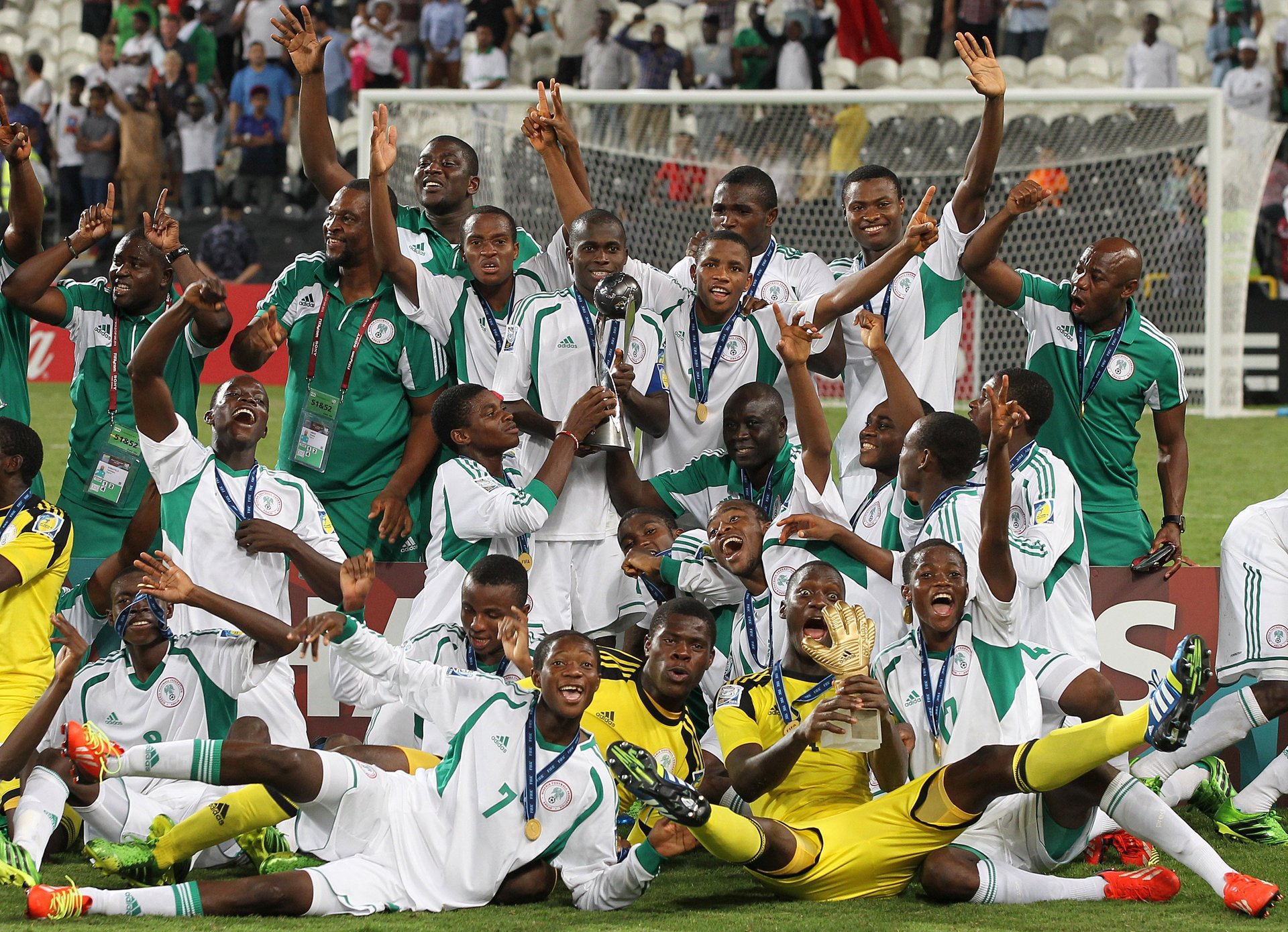Africa dominates in youth soccer—so why can’t it succeed at the highest level?
Nigeria are world champions. Again.


Nigeria are world champions. Again.
The national soccer team won the under-17 World Cup, retaining the trophy they won two years ago in the UAE, defeating fellow Africans Mali 2-0 in the final in Chile yesterday (Nov. 8).
Nigeria is now the most successful team in the history of the tournament, which started in 1985, winning it a record five times. In fact, African teams have dominated the under-17 World Cup, with 11 of the 16 finals to date featuring at least one African representative.
African teams have historically done well at the youth level of international tournaments. Ghana won the under-20 World Cup in 2009. At the Olympics, where teams are required to field a majority players under 23 years of age, Nigeria and Cameroon have taken gold, in 1996 and 2000, respectively.
However, at the senior level, no African team has ever made it past the quarterfinals in the World Cup. In last year’s tournament, only two of the five African teams that qualified even made it out of the group stage.
There are many theories about this. Some have argued that African teams routinely falsify their players’ ages at youth level, giving them an unfair advantage. At this year’s under-17 tournament, Mexico’s coach insinuated as much prior to his team’s semi-final match against Nigeria.
Another explanation is that youth tournaments offer African players their first opportunity to showcase their talents for scouts looking to recruit for deep-pocketed European teams. For these young players, therefore, there is the added motivation beyond just the desire to win.
And then there is the mismanagement, corruption, and general dysfunction that characterizes many the continent’s organizing committees. This means that the teams continuously fail to build on and institutionalize the promise of their youth teams.
See, for example, the repeated stories of African players quarreling with officials over pay and preparation during international tournaments. During the 2014 World Cup, Ghana’s government had to fly in $3 million in cash in the middle of the tournament to give to its players, who had not been paid prior to the games. This was on top of problematic pre-tournament preparations that led one player to dub the process “amateurish.” It is no wonder, then, that at the highest echelons of the game—when many African players are paid handsomely by European clubs and exploited by greedy officials—teams rarely reach the heights of their youthful promise.
In Nigeria, for instance, the manner in which the country’s federation fired, then re-hired national team coach Stephen Keshi, only to fire him again, shows just how shambolic these organizations can be. The success of Nigeria’s under-17 team this year offers yet another opportunity for the country to build on. Hopefully, it will not waste it this time.